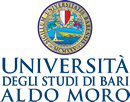Bella tonant totumque quatit discordia mundum: scrivere in latino durante la Grande Guerra
DOI:
https://doi.org/10.15162/2465-0951/1089Parole chiave:
Neo-Latin Literature, Neo-Latin Poetry, First World War, First World War Poetry, Classical Tradition.Abstract
This article aims to offer an overview of Neo-Latin literature between 1914 and 1920. The authors of Latin writings about the Great War – young people just out of high school, university students, priests, professors and politicians – described famous battles as well as more private episodes. Elegies are predominant, but there are also short epigrams, songs, epistles, jokes and encyclicals. These works are transnational, since authors from different countries wrote in the same language, using the same metrical structures, figures of speech and literary models. Therefore, the picture of the conflict which emerges from their writings resembles not a clash of civilizations, but rather a long and bitter civil war.Downloads
Pubblicato
2019-05-29
Fascicolo
Sezione
The Old Lie. I classici e la Grande Guerra - a cura di Roberta Berardi, Nicoletta Bruno, Anna Busetto, Luisa Fizzarotti





